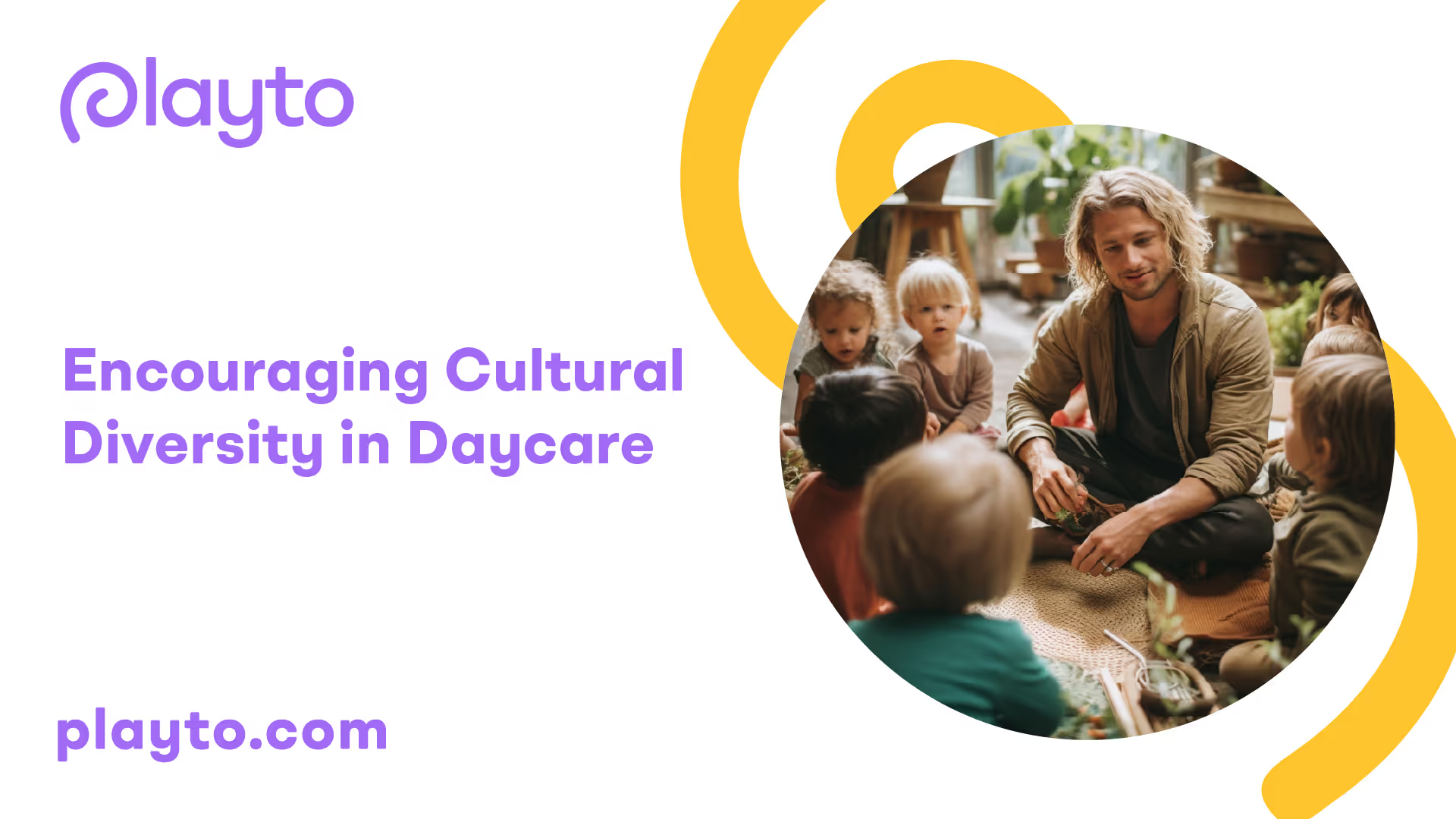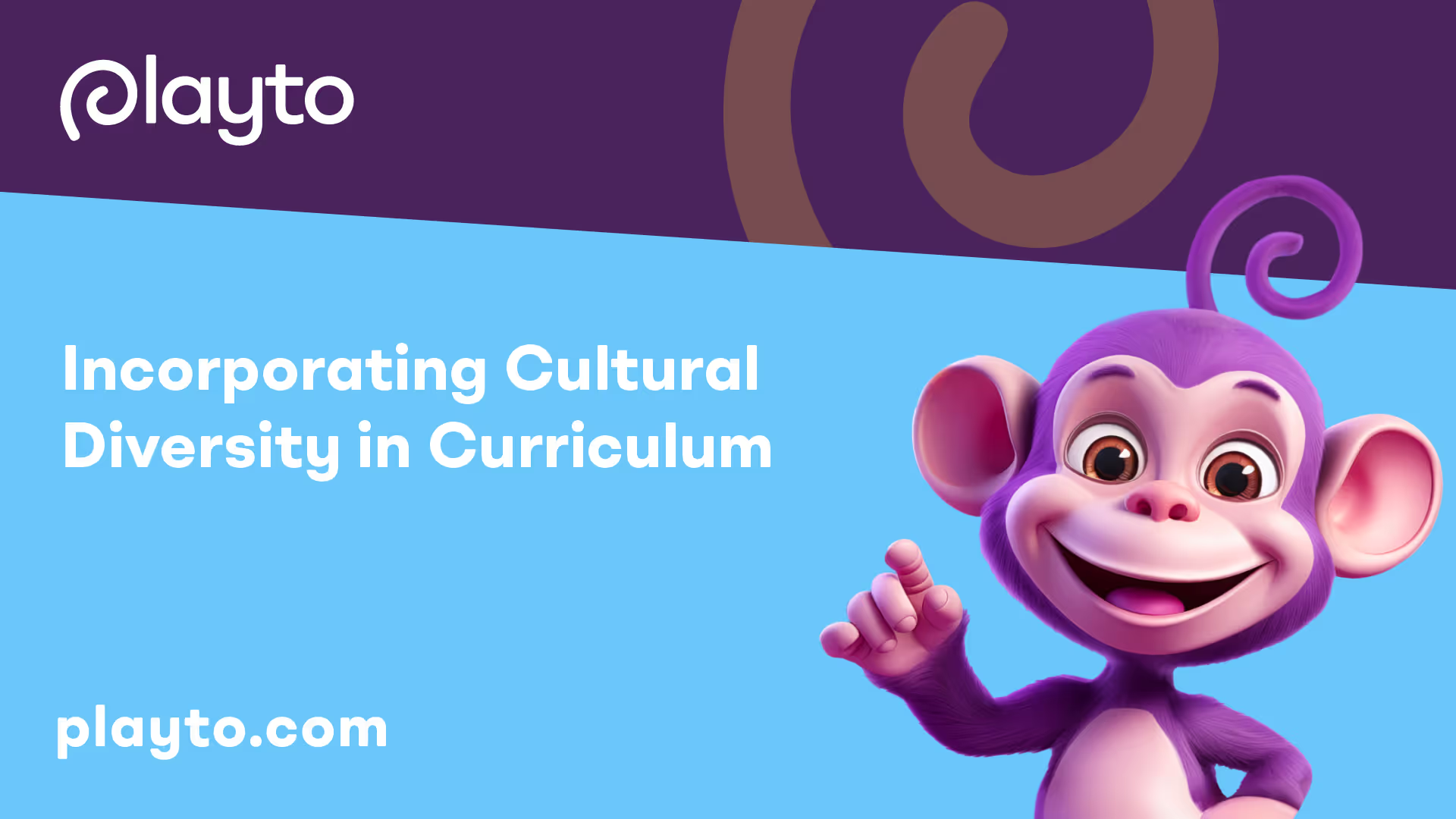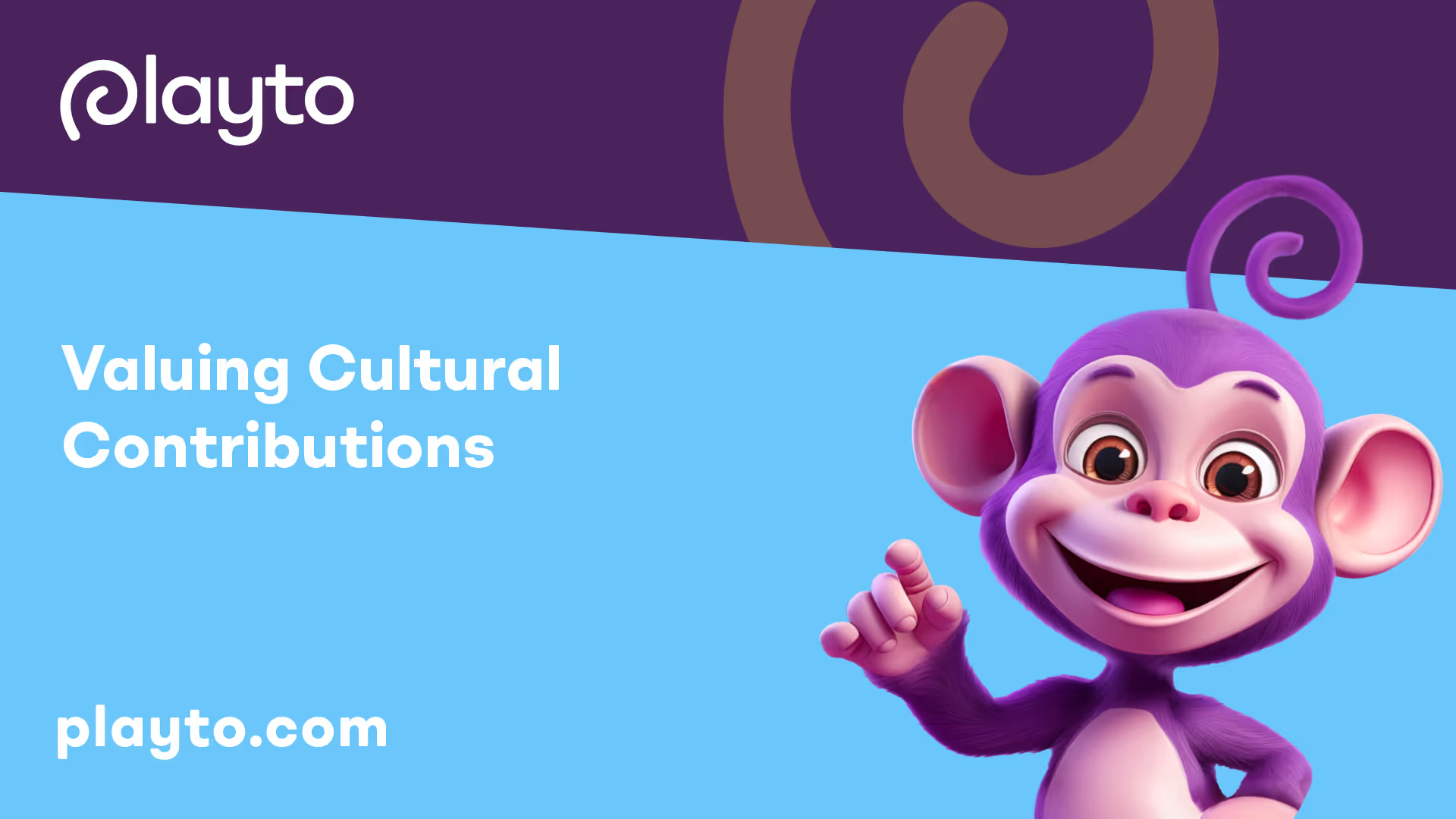
Embracing Cultural Diversity in Daycare
In a diverse and multicultural society, it is crucial for daycare centers to embrace and promote cultural diversity. By doing so, they can create an inclusive environment that celebrates the uniqueness of each child and fosters a sense of belonging. This section will explore the importance of cultural understanding and the significance of fostering inclusive relationships in daycare.
Importance of Cultural Understanding
For daycare providers, cultural understanding is essential in order to recognize and appreciate the diverse backgrounds of the children and their families. By understanding their own culture and recognizing how different cultures influence behavior, teachers can create an environment that gives every child a fair chance to succeed.
Cultural understanding allows educators to cultivate empathy, respect, and appreciation for different cultures. It helps them become more aware of their own biases and assumptions, enabling them to provide equitable opportunities for all children. By embracing cultural diversity, daycare centers can help children develop a positive sense of self and build meaningful connections with their peers.
Fostering Inclusive Relationships
Daycare centers play a crucial role in fostering inclusive relationships between families, children, and educators. Early childhood educators must consistently support warm and caring relationships between families and their children. They should respect families' languages and cultures and incorporate them into the curriculum, teaching practices, and learning environment [1].
To foster inclusive relationships, teachers should actively engage with families and seek to understand their cultural values and practices. This understanding helps educators appreciate the unique contributions each child can make to the classroom, creating a welcoming and valued environment for children and their families.
By embracing cultural diversity and fostering inclusive relationships, daycare centers can create a supportive environment that nurtures children's sense of identity, belonging, and self-worth. It provides an opportunity for children to learn from one another, appreciate different perspectives, and develop skills for effective communication and collaboration.
In the next sections, we will explore how daycare centers can incorporate cultural diversity in their curriculum, value cultural contributions, and promote cultural awareness among children.

Incorporating Cultural Diversity in Curriculum
In order to create an inclusive and culturally diverse environment in daycare, it is crucial to incorporate cultural diversity into the curriculum. This helps children develop an understanding and appreciation for different cultures, languages, and customs. In this section, we will explore two key aspects of incorporating cultural diversity in daycare curriculum: integrating languages and cultures and adapting teaching practices and the learning environment.
Integrating Languages and Cultures
To promote cultural diversity, it is important for early childhood educators to support and respect families' languages and cultures. This can be achieved by incorporating different languages and cultural elements into the curriculum. By exposing children to diverse languages, songs, stories, and traditions, they develop an appreciation for different cultures and gain a broader perspective of the world.
Teachers can introduce multicultural literature and bilingual books to the classroom, allowing children to explore stories and experiences from various cultures. Additionally, encouraging families to share their languages and customs can create a sense of belonging for children from different cultural backgrounds. This integration of languages and cultures not only enhances cultural diversity but also promotes language development and cultural understanding.
Teaching Practices and Learning Environment
Creating a culturally diverse learning environment involves adapting teaching practices and the physical space to reflect the diversity of the children and their families. Teachers should take the time to learn about each family's cultural values and traditions to appreciate what each child can contribute to the classroom. This helps children and their families feel welcomed, valued, and respected.
Teachers can display materials, pictures, and artifacts that represent different cultures in the classroom. This not only exposes children to cultural diversity but also provides opportunities for discussions and learning about different traditions, celebrations, and customs. The learning environment should be inclusive and encourage children to appreciate and respect differences.
Moreover, teachers should be mindful of their own cultural understanding and biases, as this allows for a more inclusive approach to teaching. Understanding one's own culture is crucial in recognizing and appreciating the influence of different cultures on children's behavior [1]. By being open to learning from and about different cultures, teachers can create an environment that embraces diversity and promotes positive interactions among children of various backgrounds.
By integrating languages and cultures into the curriculum and adapting teaching practices and the learning environment, daycare centers can foster an inclusive and culturally diverse setting. This not only enriches the educational experience for children but also prepares them for a globalized world, where cultural sensitivity and understanding are essential skills.[3]

Valuing Cultural Contributions
In order to encourage cultural diversity in daycare, it is essential to value and appreciate the cultural contributions of each child and their family. By acknowledging and respecting the cultural values of families, daycare centers can create an inclusive and welcoming environment where everyone feels valued and respected.
Appreciating Family Cultural Values
Teachers play a vital role in understanding and appreciating the cultural values of each family. This understanding allows teachers to appreciate what each child can contribute to the class, enabling children and their families to feel welcomed and valued [1]. By learning about the cultural values and traditions of families, teachers can incorporate these aspects into the daycare curriculum. This not only helps children from diverse backgrounds feel included, but it also promotes a sense of pride and belonging.
Viewing Differences as Resources
Cultural and linguistic differences should be seen as resources, not as deficits, in early childhood education. Each child brings a unique perspective and set of experiences to the daycare setting. By viewing these differences as valuable resources, teachers can create a learning environment that celebrates diversity and fosters understanding. Encouraging children to share their customs, traditions, and languages can help build a sense of appreciation and respect for different cultures.
By incorporating multicultural books, toys, and materials into the daycare environment, teachers can promote diversity and expose children to various cultural experiences. This exposure helps broaden their understanding of the world around them and cultivates an appreciation for different cultures. It also lays the foundation for building positive relationships and fostering a sense of empathy and respect towards others.
In summary, valuing cultural contributions in daycare is crucial for creating an inclusive and diverse learning environment. By appreciating family cultural values and viewing differences as resources, daycare centers can promote a sense of belonging and respect among children from diverse backgrounds. This not only enriches the daycare experience but also prepares children to become global citizens who appreciate and celebrate cultural diversity.
Promoting Cultural Awareness
To encourage cultural diversity in daycare, it is essential to promote cultural awareness among both families and children. By reaching out to families and the community, and educating children on diversity, daycare centers can create an inclusive environment that celebrates and respects different cultures. [2]
Reaching Out to Families and Community
Reaching out to families and the local community is a crucial step in promoting cultural diversity in daycare. By providing information about different cultures represented in the students and staff, daycare centers can foster an environment that acknowledges and respects cultural diversity within the program. This can be achieved through various initiatives, such as:
- Hosting cultural events or workshops where families can share their traditions and customs.
- Collaborating with community organizations or cultural centers to provide resources and guest speakers.
- Organizing multicultural festivals or celebrations to showcase the diversity within the daycare community.
These efforts help create a sense of belonging and promote understanding among families from different cultural backgrounds. By going beyond traditional American holidays and including celebrations like Kwanzaa, Eid, Hanukkah, and Christmas, daycare centers can demonstrate their commitment to embracing and valuing diverse cultures. For more information on encouraging cultural diversity in daycare, visit our article on encouraging self-help skills in daycare children.
Educating Children on Diversity
Educating and informing children about different cultures and diversity is fundamental in daycare programs. This education nurtures their sense of respect and understanding towards people from different backgrounds. It provides an opportunity for children to explore various cultures outside of their own, fostering empathy and appreciation for diversity.
Daycare centers can incorporate diversity education through various means, such as:
- Reading books and sharing stories that highlight different cultures and traditions.
- Introducing diverse toys, puzzles, and art materials that represent various ethnicities and backgrounds.
- Incorporating multicultural music, dance, and language activities into the curriculum.
- Encouraging discussions and group activities that promote understanding and acceptance of differences.
By integrating diversity education into the daily routine, daycare centers can help children develop a positive attitude towards cultural differences. This lays the foundation for becoming global citizens who are compassionate, open-minded, and socially conscious. For more insights on promoting cultural diversity in daycare, refer to our article on encouraging literacy skills in daycare.
Embracing cultural diversity in daycare is essential for preparing children for a globalized world and fostering empathy and respect. It helps children understand the world's rich tapestry of cultures and traditions, contributing to the development of compassionate and socially conscious individuals. By actively promoting cultural awareness through family outreach and educational activities, daycare centers create an environment that values and celebrates diversity.
Benefits of Cultural Diversity in Daycare
Encouraging cultural diversity in daycare settings offers numerous benefits for children. By embracing and valuing different cultures, children are better prepared for a globalized world and develop essential skills such as empathy and respect.
Preparing Children for a Globalized World
In today's interconnected world, understanding and appreciating different cultures is crucial. By exposing children to diverse cultures at an early age, daycare centers play a vital role in preparing them to navigate and thrive in a globalized society. Exposure to different languages, traditions, and perspectives broadens their worldview and cultivates cultural sensitivity.
When children interact with peers from diverse backgrounds, they learn to communicate effectively, collaborate, and work harmoniously with individuals who have different customs, beliefs, and experiences. This exposure fosters a sense of curiosity and openness, preparing children to become global citizens who can contribute positively to an increasingly interconnected world.
Fostering Empathy and Respect
Cultural diversity in daycare settings promotes empathy and respect among children. Through interactions with peers from different cultural backgrounds, children learn to appreciate and value diversity, recognize commonalities, and embrace differences.
By engaging in activities that celebrate diversity, such as storytelling, music, dance, and art from various cultures, children develop a deeper understanding and appreciation for different ways of life. They learn to see beyond superficial differences and focus on shared humanity, fostering empathy and respect for others.
Research has shown that exposure to diverse cultures from an early age helps reduce prejudice and bias. It enables children to challenge stereotypes and develop a sense of fairness, equality, and social justice. These values are essential for building inclusive communities and creating a better future.
By promoting cultural diversity in daycare, we can create an environment where children learn to respect, value, and celebrate differences. This sets the foundation for a more inclusive society, where individuals from all backgrounds can thrive and contribute their unique perspectives and talents.
To learn more about strategies for implementing diversity in daycare settings, explore our section on designing diverse learning environments and celebrating cultural festivals.
Strategies for Implementing Diversity
To successfully encourage and embrace cultural diversity in daycare, it is essential to implement effective strategies that create an inclusive environment. Two key strategies for promoting diversity in daycare are designing diverse learning environments and celebrating cultural festivals.
Designing Diverse Learning Environments
Creating diverse learning environments is crucial in fostering a sense of inclusivity and respect for different cultures. Here are some strategies to consider:
- Displaying multicultural resources: Incorporate books, toys, and artwork that reflect a variety of cultures and ethnicities. This allows children to see themselves and others represented in their daily learning experiences.
- Incorporating diverse perspectives: Introduce diverse perspectives and experiences through storytelling, music, and discussions. Encourage children to share their family traditions and cultural practices, promoting a sense of pride and cultural understanding.
- Providing multilingual materials: Include materials in different languages to support children who may speak languages other than English. This helps create an inclusive environment where all children feel valued and respected.
- Offering diverse learning activities: Plan activities that expose children to different cultural practices, such as cooking traditional dishes, celebrating festivals, and learning about customs and traditions from around the world. This encourages children to appreciate and learn from diverse cultures.
Celebrating Cultural Festivals
Celebrating cultural festivals is a tangible way to honor and appreciate the diversity within the daycare community. Consider the following strategies:
- Acknowledging and respecting cultural holidays: Recognize and celebrate holidays from various cultures represented in the daycare. Embrace diverse celebrations beyond traditional American holidays, such as Kwanzaa, Eid, Hanukkah, and Christmas.
- Involving families: Encourage families to share their cultural traditions and participate in celebrations. This involvement fosters a sense of community and allows children to learn firsthand about different cultural practices.
- Organizing multicultural events: Arrange multicultural events where families and children can share their cultural heritage through food, music, dance, and art. These events provide opportunities for families and children to connect, learn from one another, and celebrate diversity.
By implementing these strategies, daycare programs can create an environment that values and embraces cultural diversity. These efforts not only enrich the learning experiences of children but also promote empathy, respect, and a sense of global citizenship among young learners. To explore more ways to enhance the daycare experience, check out our articles on encouraging literacy skills in daycare and encouraging positive behavior in daycare.
